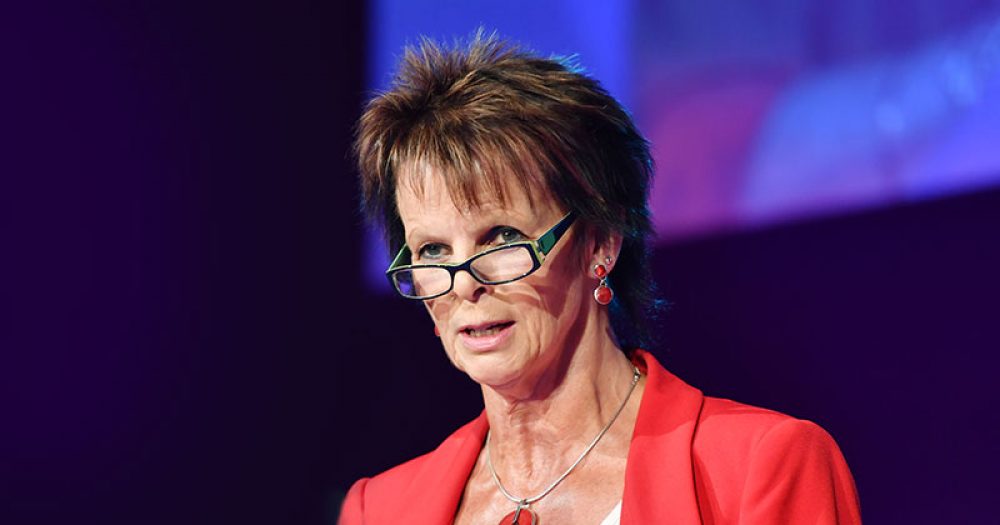Around £25 million was given to providers entering the apprenticeship market for the first time in the controversial non-levy tender, Anne Milton has revealed.
In her first monthly column for FE Week, the skills and apprenticeships minister makes a robust defence of the government’s approach to the procurement exercise, explaining how it was unavoidable due to EU law.
But in what will likely be taken as bittersweet by the top colleges and providers that received no funding, she disclosed that five per cent of the £485 million pot – £24.25 million – went to new providers who were neither prime nor subcontractors before.
“We have enabled more new providers and employers to enter the market while still supporting the existing supply where we could; approximately 95 per cent of the funding awarded will be to providers currently delivering apprenticeships,” Ms Milton (pictured above) writes.
While disgruntled providers who were denied contracts in the tender continue to fight their appeals, the AELP has hinted that there could yet be some good news on the horizon.

“We are working very closely with ESFA to get a package of measures agreed that we hope should help ease the position for our members through to April 19,” the association’s chief, Mark Dawe, wrote in his newsletter to members this week.
“Usual line of ‘imminent’ I’m afraid, but we are aware how important this is to many of you.”
Meanwhile, Conservative MPs have begun weighing in on the debate, with one requesting that all colleges have access to funding for apprenticeships with smaller employers.
Jeremy Lefroy, the MP for Stafford, became the latest prominent voice to raise the issue in parliament after Newcastle and Stafford Colleges Group, which is in his constituency, was denied a non-levy contract.
“Just having the levy on its own is not necessarily sustainable,” he said in a written question. “Will the minister ensure that all further education colleges have access to funding for non-levy apprenticeships?”
Universities minister Sam Gyimah failed to address the latter issue in his response, but insisted that the levy is in its “infancy” and needs to be given time to work.
Mr Lefroy is likely to be joined in the non-levy fight soon by Royston Smith, the Conservative MP for Southampton, who is jumping to the defence of SETA, a registered charity who has delivered engineering apprenticeships in the area for 48 years.
We have re-appealed to the better judgement of government to see the damage this could cause our sector
The Ofsted ‘good’-rated provider was unsuccessful because it fell below the £200,000 threshold the ESFA used to apply its pro-rata methodology.
“We have re-appealed to the better judgement of the government to see the damage this could cause our sector,” Mike Driscoll, director of operations at SETA, told FE Week. “We have liaised with our local MP and will continue to fight the decision.”
He added that if the ESFA continues to deny them a contract, then the message to employers in the short term is that “size matters”.
“So, if you’re a large levy-paying employer you can continue to use SETA. However, if you are small, sorry – you will have to find another provider with the funding to train you,” he said.
“Or, perhaps you can hold off recruiting until April 2018 when we may well be able to fund the service you’ve enjoyed for the last 48 years.”
Other top training providers and colleges have also turned to influential MPs in an effort to squeeze the cash they need from the government after they were denied contracts in the much-delayed procurement.
Exeter College, which FE Week rates as the best college in the country, is working with Ben Bradshaw, a former culture, media and sport secretary who described the situation as “inexplicable”.
Meanwhile, ‘good’-rated HYA Training is liaising with its own MP, Emma Hardy, who sits on the education select committee.









We were here many years ago with a multitude of small providers with no experience of apprenticeship delivery jumping on the band wagon. Many of them were not up to standard or at worst some were even fraudulent, giving apprenticeships a bad name. Looks like we may be returning to the bad old days with the funding for non-levy going to a large number of new, unproven providers. We shall watch this space.